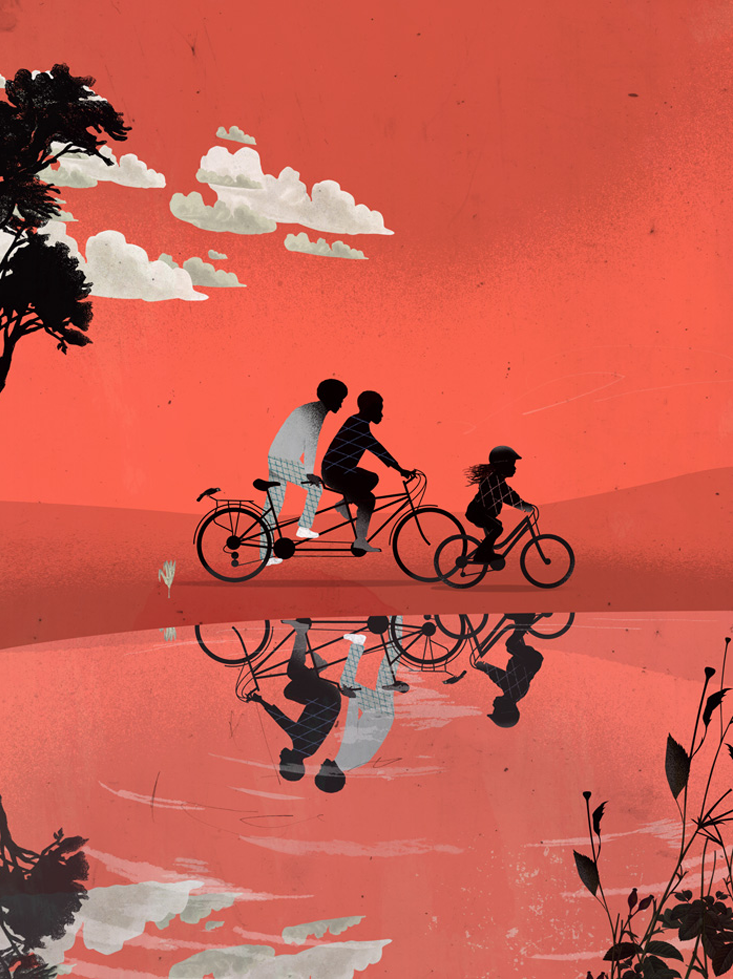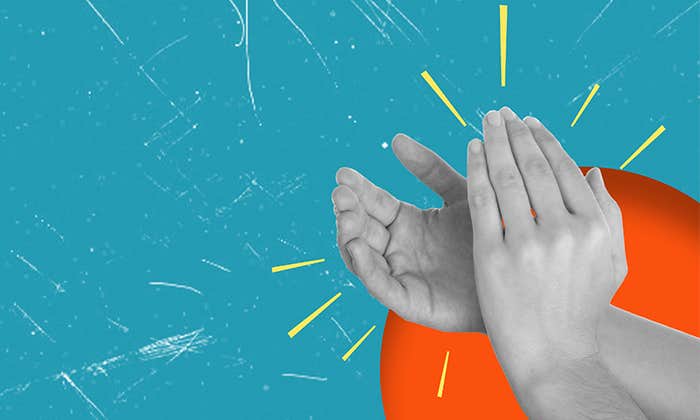The Northwestern University economist Charles Manksi calls it the “reflection problem”: How can we know if person A is affecting person B, or the reverse? Without being in each person’s head or observing every subtle non-verbal cue in their interactions, it’s impossible to know what’s causing what, who is the leader and who is the follower.
Families are especially complex: Cause and effect are hard to disentangle in the bubbling cauldron that is a household. There are the daily negotiations between husband and wife, instructions to (and rejections by) children, and interactions with people outside the family. Taken as a whole, it is a challenge for a social scientist to analyze.
But there is at least one lens through which family interactions and feedback have become apparent: gender. It turns out that a complex set of negotiations and drives revolve around the sex of children, which involve both effects from parents onto children and vice versa.
In 1973, Robert Trivers and Dan Willard put forth the hypothesis that the sex of offspring is not, in fact, a random draw. The argument was based on the fact that, in many mammal species where investments in offspring are high, females are a safer evolutionary bet than males.
That is, with few exceptions, a female who wants to have offspring can pretty much accomplish that—they just need to rope a male in for a few moments. In a competitive environment, females want to choose the “best” sperm to produce their offspring (in balance with the desire to have a father around who will contribute to the care of said offspring).
So when resources are scarce, or when a female’s health is not in tip-top shape, or when she is at the bottom of the hierarchy, she skews toward the safer investment: daughters. This has been shown in red deer, cows, and even our cousins, the Barbary macaques.1 I say, she skews, because the general theory is that such sex selection is accomplished by signaling within the mother’s body that leads to the spontaneous abortion of male blastocysts (early embryos). A lower level of blood glucose tells the womb that things are not pretty out there.
Stressful events like natural disasters and political upheavals affect sex ratios, even in humans.
While circulating blood glucose is one likely mechanism that affects sex ratios in response to the environment, it is probably not the only one. A growing literature shows that stressful events like natural disasters and political upheavals also affect sex ratios, even in humans. Florencia Torche, for example, found that exposure to an earthquake in Chile during the third month of pregnancy led to a reduction in the number of males born. (This is shocking because it is very late in the pregnancy as compared to the research on the blastula stage.) Other researchers are studying the effects of 9/11 on the sex ratio. So far, evidence is mixed. Ralph Catalano and colleagues found that there was disproportionate male fetal loss among New Yorkers (and, strangely, Californians). Meanwhile, Ryan Brown of Duke University finds no effect using a slightly different sample. And, in perhaps the most troubling study, Amar Hamoudi and Jenna Nobles found that high conflict marriages lead to the birth of more girls.
Cortisol, a stress hormone, is the likely culprit in the above studies; though if stress causes pregnant mothers to neglect eating, glucose could still be the operant pathway. While the study of signaling mechanisms that cause disproportionate male fetal loss makes for exciting science (and indeed there is a whole debate about whether sex ratios are also skewed at conception), the most important factor affecting human populations today is probably social: boy preference.
Some background: In the absence of major trauma or modern technologies, the sex ratio slightly favors boys. The reason for this is generally thought to be that the male sperm has an advantage over the female sperm because the amount of genetic material that the male sperm is carrying weighs less. That’s because the Y-chromosome has dwindled down to almost nothing, while the X is huge. Whatever the reason, the natural course of events seems to favor the birth of boys.
But, since we live in a sexist world, many parents prefer male heirs. The most extreme case of this can be found in East Asia, particularly under China’s one-child policy, where there is no second chance for a male heir. But even American parents betray sexist preferences: Recent analysis of Google searches shows that there are more searches on how to have a boy than there are on how to have a girl.

Having influenced the gender of our children, consciously or not, we find that the conversation is not over. The data are telling us that the gender of our offspring has enormous consequences. Whether we have a son or a daughter affects our lives in ways that we may not care to admit: from our politics (sons make us more liberal and daughters drive us to the Republican Party, in the United States2 if not in Europe) to our family structure (for better or worse, sons make our marriages last longer than do daughters—though daughters may be more the effect of divorce than its cause3,4) to our happiness (dads with adolescent sons are the least happy parents of all5).
In the U.S., University of Kansas sociologist Emily Rauscher and I looked at the gender of the first-born (biological) child among respondents in the General Social Survey—an annual study out of the University of Chicago that is kind of like the Nielsen for social science. We focused on the first-born child since folks with specific gender preferences might stop having kids (or have more) based on the first draw. We also excluded families with step or adopted kids, since these are chosen and not dealt randomly to parents.
We found that—contrary to prior studies, which failed to exclude non-biological children—sons, not daughters, made parents (of both sexes) more liberal and more likely to vote Democratic. Curiously, while daughters made parents more Republican, they also made them more pro-choice. When we dug deeper, we found that the only issues on which the gender of offspring affected parental opinion were related to sexuality. Other partisan debates—guns, foreign policy, taxes, immigration, welfare, and so on—were unaffected. And while daughters caused parents to adopt more conservative views toward sexuality, they paradoxically made them more pro-choice. Or perhaps it isn’t so paradoxical but really just rational: Given that the costs of teenage, premarital childbearing are disproportionately born by the mother, parents of girls might prefer a more chaste sexual landscape and yet also prefer abortion to be legal just in case.
Recent analysis of Google searches shows there are more searches on how to have a boy than on how to have a girl.
Of course, it’s hard to know whether our sons and daughters are actually changing us through social interaction. Does a baby girl’s actions make Mom and Dad see the world in a new light? Or does she merely tip the scales in terms of incentives? For example, Abigail Weitzman, a Ph.D. candidate at New York University, finds that across the less developed world bearing a daughter carries what she calls a “tax” that is borne by the mother. Mothers of first-born daughters are not only more likely to be abandoned or abused, they have to go to work at higher rates. Evidently, fathers want the mothers of their sons to stay home and raise them. But they aren’t willing to forsake additional family income in the case of nurturing daughters.

But the effects of child gender are not all that simple in the end. While mothers may bear a daughter tax, fathers appear to experience a second adolescence when they have sons. That is, when men have boys family life may appear hunky dory—that is, until those sons enter adolescence themselves. Then it appears that developing-world dads either get competitive with their sons, become jealous, or feel the need to model stereotypically masculine behavior for them. Weitzman finds that fathers of boys who are ages 12 to 18—but not dads of girls that age or of boys at other ages—are more likely to hold extreme views such as believing that it is okay to force sex upon an unwilling woman. They are also more likely to go outside the marriage for sex and to bring back sexually transmitted diseases to the family. This is perhaps the best evidence for parental socialization by children—the dads’ incentives are not likely to have changed as a result of their sons’ blossoming sexuality, just their mindset.
The sociological study of groups tells us that social life is rarely one-way. Health affects wealth and vice versa. Birds of a feather flock together, and so on. Gender and family, it turns out, is no different.
Dalton Conley is a professor of sociology, medicine, and public policy at New York University and the author of several books, most recently, Parentology.
References
1. Kuesterl, A.P. & Arnemann, J. Maternal rank affects reproductive success of male Barbary macaques (Macaca sylvanus): evidence from DNA fingerprinting. Behavioral Ecology and Sociobiology 30 (5), 337-341 (1191).
2. Conley, D. & Rauscher, E. The effect of daughters on partisanship and social attitudes toward women. Sociological Forum 28 (4), 700-718 (2013).
3. Morgan, S.P., Lye, D.N., & Condran, G.A. Sons, daughters, and the risk of marital disruption. The American Journal of Sociology 94 (1), 110-129 (1988).
4. Dahl, G.B. & Moretti, E. The demand for sons. Review of Economic Studies 75, 1085-1120 (2004).
5. Senior, J. All Joy and No Fun: The Paradox of Modern Parenthood Ecco (2014).























